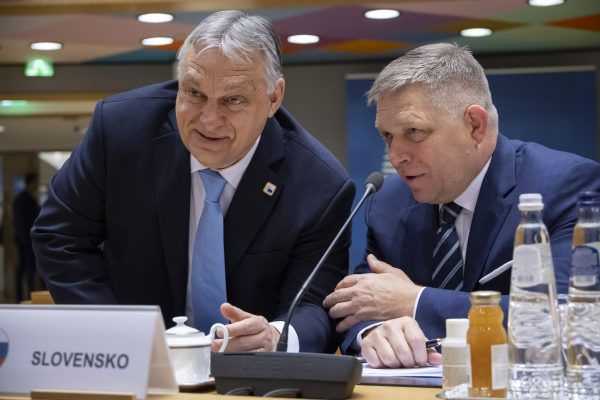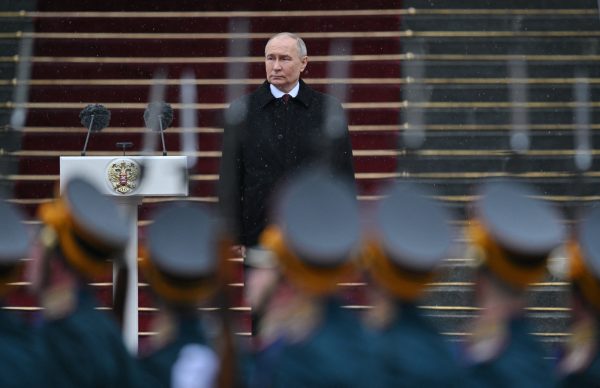When Russian troops crossed the border to begin the full-scale invasion of Ukraine on 24 February 2022, one of the many things that changed was the fate of about 20,000 Latvian permanent residents who opted for Russian citizenship following independence.
The sight of Russian tanks rumbling towards Kyiv triggered outrage — and some sense of historical trauma — and there were swift demands for language policies banning the use of Russian in all but the most private spheres.
The response came in the run-up to the 2022 election when the Latvian parliament agreed to an amendment to the Immigration Law, tabled by the extreme right National Alliance, requiring all Russian and Belarusian citizens wishing to prolong their old residence permits to pass a Latvian language test. Only those aged 75 and older were exempt.
This measure, hardly noticed by most Latvian media at the time, proved virtually impossible to implement. By the end of March 2023 (the initial deadline for those applying to take the test), less than half of Russian citizens with old residence permits had applied. As a response, the Saeima extended the deadline until September 1. But so far, only half of those who took the (very low threshold) test have passed. If no further changes are made, those who have not passed the test repeatedly or have not taken it will be asked to leave the country in December.
This policy, not very well thought through, has been criticized by the Ombudsman and exploited by opposition politicians. The mayor of Latvia’s second-largest city, Daugavpils, held a public consultation on the legal implications for Russian citizens and around 2,500 people attended — most electoral meetings in Latvia attract much smaller crowds. Political figures with a predominantly Russian-speaking electoral base in the eastern region of Latgale and in Riga have also used the situation to raise their appeal. Populist politicians Ainārs Šlesers and Aleksejs Roslikovs both spoke of looming “deportations”, a heavily loaded term given the Soviet history of expulsions and murders of Latvians.
The story hit international headlines in May, and with increased visibility, the potential for exploitation by Russia also grew. As far as strategic communication goes, this is suboptimal, and so far the Latvian government has done too little to address its potential impact and possible reputational damage.
The people affected number just 20,000 in a population of around 1.9 million. They are not therefore a large number, although they once were. They trace their roots to Soviet-era immigrants who entered the territory of Latvia during the occupation and opted not to apply for citizenship when offered the opportunity after 1991.
While most Russian speakers chose to naturalize and become Latvian citizens, the remainder opted for citizenship of the Russian Federation. This wasn’t just based on sentiment; those with Russian passports enjoy visa-free travel to visit relatives across the border and can take their pensions at 55 (for women, who constitute the majority of this group.) Similar reasons led another, still-smaller group, to apply for Belarusian passports.
Before the all-out war, most of Latvian society was complacent about these choices. It was still possible to lead a monolingual life in Russia in a suburb of Riga and even vote for Putin in the Russian presidential elections.
What to do? The worst outcome is not foreordained. There is time to alter the course of events.
Changes in the government coalition have been on the agenda since May, and the extreme-right authors of the initial amendment may find themselves in opposition before September 1. Without them, the remaining center-right parties should seek a solution that will not give a free bonus to Russian propagandists, while ensuring that national security is safeguarded.
Marija Golubeva is a Distinguished Fellow with the Democratic Resilience Program at the Center for European Policy Analysis (CEPA). She was a Member of the Latvian Parliament (2018-2022) and was Minister of the Interior from 2021-2022. A public policy expert, she has worked for ICF, a consultancy company in Brussels, and also as an independent consultant for European institutions in the Western Balkans and Central Asia.
Europe’s Edge is CEPA’s online journal covering critical topics on the foreign policy docket across Europe and North America. All opinions are those of the author and do not necessarily represent the position or views of the institutions they represent or the Center for European Policy Analysis.





